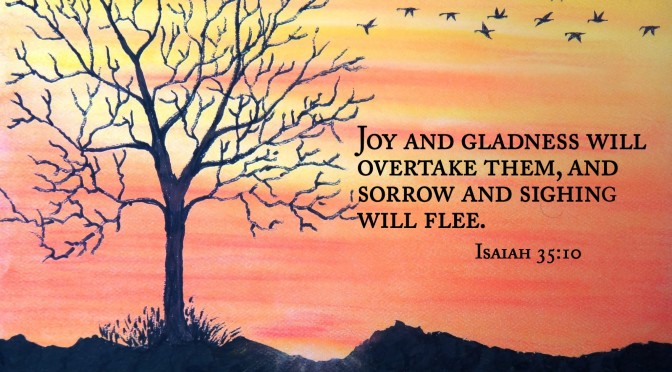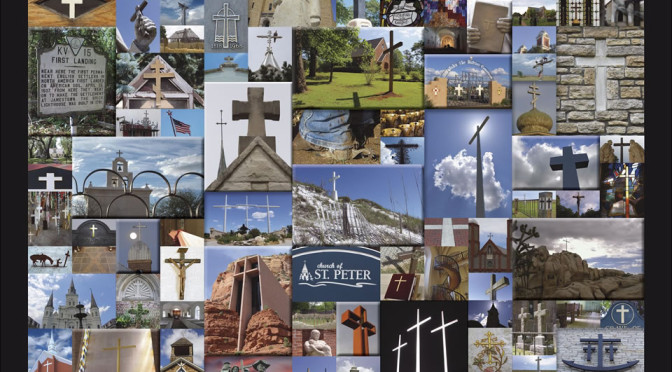Caitlin Trussell with Augustana Lutheran Church on September 10, 2023
[sermon begins after two Bible readings]
Matthew 18:15-20 [Jesus said to the disciples:] 15“If another member of the church sins against you, go and point out the fault when the two of you are alone. If the member listens to you, you have regained that one. 16But if you are not listened to, take one or two others along with you, so that every word may be confirmed by the evidence of two or three witnesses. 17If the member refuses to listen to them, tell it to the church; and if the offender refuses to listen even to the church, let such a one be to you as a Gentile and a tax collector. 18Truly I tell you, whatever you bind on earth will be bound in heaven, and whatever you loose on earth will be loosed in heaven. 19Again, truly I tell you, if two of you agree on earth about anything you ask, it will be done for you by my Father in heaven. 20For where two or three are gathered in my name, I am there among them.”
Romans 13:8-14 Owe no one anything, except to love one another; for the one who loves another has fulfilled the law. 9The commandments, “You shall not commit adultery; You shall not murder; You shall not steal; You shall not covet”; and any other commandment, are summed up in this word, “Love your neighbor as yourself.” 10Love does no wrong to a neighbor; therefore, love is the fulfilling of the law.
11Besides this, you know what time it is, how it is now the moment for you to wake from sleep. For salvation is nearer to us now than when we became believers; 12the night is far gone, the day is near. Let us then lay aside the works of darkness and put on the armor of light; 13let us live honorably as in the day, not in reveling and drunkenness, not in debauchery and licentiousness, not in quarreling and jealousy. 14Instead, put on the Lord Jesus Christ, and make no provision for the flesh, to gratify its desires.
[sermon begins]
What comes to mind when you hear the words, “red carpet?” Do you see cars, stars, and celebrities getting the royal treatment? Are you thinking of Emmys, Grammys, Oscars, or People’s Choice? Years of watching red carpet entrances makes me think about gowns. Eye catching gowns ranging from vintage to vixen, vanilla to vermilion, Versace to Veronica,[1] and photographers yelling, “Who are you wearing?!”[2] Stars and celebrities shout out the gown’s designer and, in doing so, they pay for the privilege of wearing a one of a kind, once and done, gown. “Who are you wearing?” Great question. Although not a question directed at those of us wearing these goldenrod-colored t-shirts the ELCA selected for “God’s work. Our hands.” Sunday.[3] Eye catching? Totally. Couture? Certainly not. Imagine it for a second. Walking along in one of these t-shirts and someone shouting, “Who are you wearing?” I checked. They’re Fruit of the Loom (not to be confused with fruit of the Spirit).[4]
While our wardrobe choices may not be red carpet worthy, the red-carpet question is worth walking with – “Who are you wearing?” Paul’s take in our Romans reading this morning is kinda cool when he tells readers to “…put on the armor of light.” Although he gets pretty Jesus-y with it a few verses later when he says to, “…put on the Lord Jesus Christ.” Lutheran Christians can get twitchy when there’s a call to “put on” something because of our utter dependence on God’s grace. God’s grace means that our faith is about what God does for us regardless of our ability or merit. We don’t climb to God on the goodness of our works. God comes down to us because of the goodness of our God. No works righteousness in this crowd, thank you very much. WE cling to the righteousness of God. That’s all well and good. It aligns with how I think about God. Taking this a step further, it’s how baptism is understood. Through the waters of baptism, Jesus is put on us daily by the power of the Holy Spirit, not once and one. Daily we die and rise in Christ’s death and resurrection, and we’re named children of God. For baptized people, this means that Jesus is the answer to the question, “Who are you wearing?”
In churchy language, baptism both justifies us by making us right with God and baptism sanctifies us by making us holy and set apart for God’s purposes. Justification and sanctification happen at the same time in baptism. Great. Good. We can all go home now. You’ve heard the good news. And it is good news. God’s promise of grace in Jesus Christ is our hope and salvation. That answers the question about, “Who are you wearing?” But there’s a question that deeply concerns Jesus once you’re reassured by God’s promise and know who you’re wearing. The question is, “How are you living?”
A wordier version of Jesus’ question would be, “Are you living in a way that loves your neighbor as yourself?” In our gospel of Matthew reading, Jesus is concerned about how conflict is handled between church people. In the verses before and after our Matthew reading today, Jesus is concerned about his people being stumbling blocks to others, being able to forgive each other, and being gracious and patient with people who are in their own struggle.[5] In the next chapter of Matthew, Jesus teaches his listeners to follow the commandments and to love your neighbor as yourself.[6] Three chapters later, Jesus repeats himself as he teaches ‘love of neighbor as self’ as the second greatest commandment next to loving God.[7] Jesus’ is concerned for how his followers live and treat other people.
Many of us have had church experiences that haven’t gone well. Jesus’ lessons about conflict are not without examples in our own congregation or in other churches around the world. Those of us who still go to church or have returned to the church know many people who will never darken the door of another church. Their stories are difficult to hear. Pain inflicted by well-intended Jesus-people is bad enough. Pain inflicted by malicious people in the name of Jesus is anathema to the gospel itself. But as we hear in the Ezekiel reading, “God takes no pleasure in the death of the wicked.” (Ezekiel 33:7-11)
Our experience and example as church people, as Jesus people, mean a lot in the world. This includes the virtual world of social media.[8] Virtual community is real community. Real people are involved. (Let’s leave bots out of the discussion for now). It can be argued that what’s portrayed on social media isn’t reality or is a limited view of reality but the people posting are real people. Our posts and comments to other people’s posts are read not only by those reacting to them but also by people scrolling by them. It’s a little lofty to think about Jesus as our editor. Perhaps a step in the right direction is to wonder if our posts and comments accurately reflect a love of neighbor as love of self especially given that our churchwide slogan of “God’s work. Our hands.” implicates our hands whether they’re keyboarding or repackaging rice and beans for Metro Caring’s grocery shelves.[9]
And, just like that [snap], we’re back to the big question, “Are you living in a way that loves your neighbor as yourself?” We may disagree about the particulars when it comes to answering this question as the church. There may be occasional conflict about what being a Jesus follower means or how we as the church work together to be God’s hands in the world or if it’s even right for us to try. Some of us may be more comfortable working with our neighbors in poverty. Some of us may be ready to dive into advocacy and legislative efforts. Some of us may have gifts for showing up for people in crisis. The list goes on and on. Regardless of tasks, it’s worth walking with the question as a church.
Which brings us back to love. I thought I knew a lot about love. And I did. But I’ve learned more about love in the last few months. Being diagnosed with cancer and discovering how much I’m capable of loving life, other people, and this small, revolving planet makes me wonder even more about how much God must love us. Us. Broken, misbehaving wonders of creation. Created good yet challenged to be good. Beloved yet disbelieving just how much we are loved. Our identity as baptized children of God means daily dying to the way we hurt ourselves and each other and rising into the way that Jesus’ love triumphs over pain and suffering. “God’s work. Our hands.” Sunday is a touchpoint that reminds us of who we’re wearing every day as we look to God to teach us God’s ways of loving through suffering and loving our neighbors as ourselves. Thanks be to God and amen.
____________________________________________________
[1] Veronica Beard, that is.
[2] Karoline Lewis (Preaching) and Matt Skinner (New Testament), Luther Seminary, St. Paul, MN. Discussion about Romans 13:14 and “Putting on Jesus Christ.” Sermon Brainwave podcast for September 10, 2023. https://www.workingpreacher.org/podcasts/920-15th-sunday-after-pentecost-ord-23a-sept-10-2023
[3] Today is a church-wide emphasis of the Evangelical Lutheran Church in America (ELCA) uniquely embodied by each ELCA congregation. ELCA Presiding Bishop Elizabeth Eaton invites us to be “church together” in this way, on this day, to remind us of our baptismal identity in the world.
[4] Galatians 5:22-23 …the fruit of the Spirit is love, joy, peace, patience, kindness, generosity, faithfulness, gentleness, and self-control.
[5] Stumbling block (Matthew 18:6-14), forgiving (Matthew 18:21-22); gracious and patient (Matthew 18:23-35).
[6] Matthew 19:16-19
[7] Matthew 23:34-40
[8] Joy J. Moore, Professor of Biblical Preaching and Academic Dean, Luther Seminary, St. Paul, MN. Sermon Brainwave podcast for Sunday, September 10, 2023. https://www.workingpreacher.org/podcasts/920-15th-sunday-after-pentecost-ord-23a-sept-10-2023
[9] www.metrocaring.org

![Red Carpet Treatment [OR Who are You Wearing?] Matthew 18:15-20 and Romans 13:8-14](https://caitlintrussell.org/wp-content/uploads/2023/09/photographers_red_carpet-672x372.jpg)
![Accelerating the Timeline [OR The Zipper Merge Gets Us All There Sooner] Matthew 15:10-28 and Genesis 45:1-15](https://caitlintrussell.org/wp-content/uploads/2023/08/Zipper-Merge-v2-672x372.jpg)

![What’s Your Longing of Faith? [OR Making It Through the Day] Hebrews 13:1-8, 15-16 and a teaser from Luke 14:1, 7-14](https://caitlintrussell.org/wp-content/uploads/2017/10/A-Cubist-Prayer-One-World-One-God.painting-by-Anthony-Falbo.sermon-Caitlin-Trussell-672x372.jpg)
![Dinner Disrupted [OR Let’s Try the Mary and Martha Thing Again, Shall We?] Genesis 18:1-10a and Luke 10:38-42](https://caitlintrussell.org/wp-content/uploads/2019/07/Jesus-Eats-with-Tax-Collectors-Sinners-—-Sieger-Köder-d.-2015-672x372.jpg)
![Entering the Easter Mystery [OR Life, Joy and Suffering] Luke 24:1-12](https://caitlintrussell.org/wp-content/uploads/2019/04/Resurrection-He-He-Qi-2013-672x372.gif)


![Thievery, Shadows and Light [OR Why Matthew’s Year is Good News] Matthew 24:36-44, Isaiah 2:1-5, Psalm 122, Romans 13:8-14](https://caitlintrussell.org/wp-content/uploads/2016/11/NASA.JPL_.light-and-shadow-exhibit.sermon-Caitlin-Trussell-672x372.jpg)
